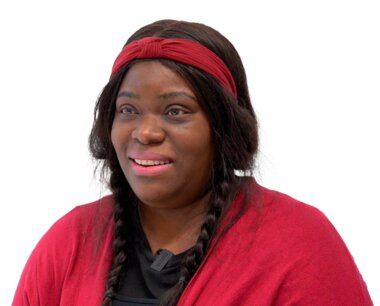15 November 2023
Over the past 18 months the South East London Long COVID Programme, funded by NHS Charities Together and Guy’s & St Thomas’ Charity, has been collaborating with patient advisers about what has helped in their recovery, and what has not.
The six-strong group of advisers has given honest feedback on some of the issues faced which has helped to recognise what we can do to make improvements in the care and support we provide to our Long COVID patients.
The group has highlighted the importance of diverse group rehabilitation courses, specialist hospital Long COVID clinics, counselling, meditation, and the specialist occupational, physical and psychological therapists who were essential to their recovery. There are still many unknowns about Long COVID, but the group’s feedback will prove invaluable as learn more about the best ways to help manage the condition.
Some of the issues that the patients have highlighted to the programme are lack of coordination between and within NHS services, delays in getting the right help and advice and ongoing support.
Julie Moore, Consultant Respiratory Physiotherapist with the programme, says:
Collaborating with patients on this programme has been incredibly powerful. As a clinician, getting their first-hand experience of what has and hasn’t helped them with their recovery has really enabled us to adapt our development ideas and workstreams, and guided us to make sure we’re meeting the needs of patients who are experiencing this new illness.
King’s Health Partners has supported the programme and produced a video featuring interviews with the patient advisers, where they talk about their healthcare experiences. It starts with an emotional account from Millicent as she recalls the moment she was rushed to hospital and her subsequent rehabilitation.
(23) Learning from our Long COVID patients - YouTube
Video transcript
‘The NHS saved my life’
Millicent [pictured right]: In July 2021 I was rushed from home to St Thomas’ Hospital with COVID as I was having difficulties breathing. After being admitted into A&E I was then taken to ICU, where I stayed for a little over a week. Then I was transferred back into a ward where I stayed for a month to recover.
While I was there I had to teach myself, with the help of all the NHS staff, the physiotherapists, and the dieticians, how to walk, how to talk, how to breathe again. I feel that the NHS saved my life.
What has helped in your recovery?
Vicky: A big step for me was starting rehab. I am two months in now and absolutely love it, and it has been a gamechanger in my recovery.
George: I think having a GP to listen to me and try to identify what was going on, as I had a lot of symptoms that didn't make sense.
 Stephanie [pictured right]: Some things that have helped specifically have been really working on my nervous system in different ways. Breath work has been transformational, as well as meditation and just learning how to relax and rest deeply. They’ve really helped me start to get my nervous system to be in a better place again. I've also benefited from some therapy from the persistent physical symptoms service at King’s College London.
Stephanie [pictured right]: Some things that have helped specifically have been really working on my nervous system in different ways. Breath work has been transformational, as well as meditation and just learning how to relax and rest deeply. They’ve really helped me start to get my nervous system to be in a better place again. I've also benefited from some therapy from the persistent physical symptoms service at King’s College London.
Learning how to slowly reintroduce movement into my life, and take some risks and not be too afraid to start to try different things have also been really important for my recovery. I’ve been able to accept that sometimes it's two steps forward and one step back, and slowly build confidence in my baseline and enjoy what I can do within my baseline. Then in another few weeks, adding in more activity, that’s what's worked really well for me.
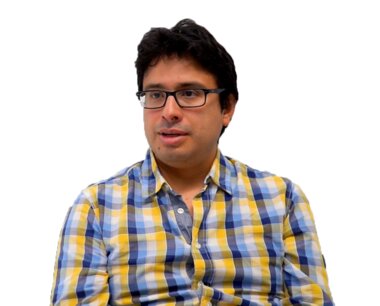 George [pictured right]: In December 2022 I finished with Nuffield, and in January I followed on with the Long COVID clinic, which was amazing, extremely, extremely helpful. I wish it had gone on for a bit longer, if I'm honest, because finally there was a place where I could feel safe and say what was going on. And ask why?
George [pictured right]: In December 2022 I finished with Nuffield, and in January I followed on with the Long COVID clinic, which was amazing, extremely, extremely helpful. I wish it had gone on for a bit longer, if I'm honest, because finally there was a place where I could feel safe and say what was going on. And ask why?
Millicent: There is one lady, her name's Katie and she’s an occupational therapist. During my recovery, around seven months after I’d left St Thomas' Hospital, I was put in touch with Katie. She took her time to listen to me, listen to what I was going through, what I needed, and how to get me to understand the journey that I've been through.
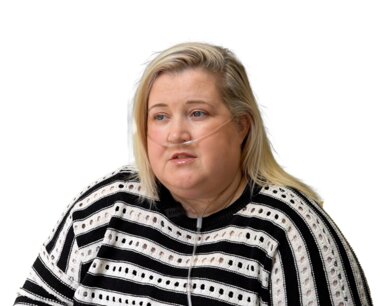 Vicky [pictured right]: A massive help has been being part of the patient advisory group for the South East London Long COVID programme. It's been a gamechanger. I have felt more included and I've met some lovely people. I’ve met Long COVID who actually understand what fatigue is, and how bearing it is on our lives.
Vicky [pictured right]: A massive help has been being part of the patient advisory group for the South East London Long COVID programme. It's been a gamechanger. I have felt more included and I've met some lovely people. I’ve met Long COVID who actually understand what fatigue is, and how bearing it is on our lives.
George: For me it was therapeutic to actually be able to say, ‘I have a disability, I have an illness’, as hard as that might be to first recognise. And that's why I say don't be scared to ask for help as mental health is so, so important. We can become so closed on our physical pain and all the other symptoms that we forget our mental health is taking a hit in between all of this.
What has not helped in your recovery?
Alys: What hasn't worked is the kind of disconnected help that people have tried to give me, unfortunately through the NHS. I've had some really great help, like counselling because I was quite traumatised.
My life has changed, and I've had some very sympathetic and helpful individual consultants, and GP telephone calls, but nothing that has followed through as a thread.
And because this is systemic, being bounced between different parts of the service is useless to me. Stuff like giving me a long list of things on the phone, I can't remember them anymore.
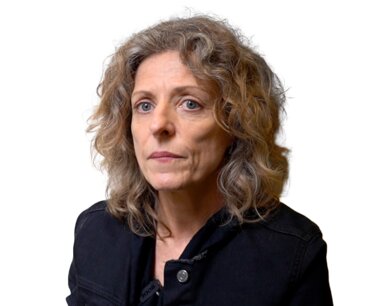 Jen [pictured right]: For me, early intervention is the thing. I went to my GP a couple of times, and by the third time I’d had COVID-19 for a third time. But he said I couldn't be referred to the Long COVID team for 12 weeks. Had the information that you guys have provided been given to me four weeks in, I really do believe that my condition wouldn't have been so severe and the recovery taken so long.
Jen [pictured right]: For me, early intervention is the thing. I went to my GP a couple of times, and by the third time I’d had COVID-19 for a third time. But he said I couldn't be referred to the Long COVID team for 12 weeks. Had the information that you guys have provided been given to me four weeks in, I really do believe that my condition wouldn't have been so severe and the recovery taken so long.
Millicent: Eighteen months/two years into my recovery with Long COVID I was referred by a physio to the 14-week COVID-19 rehab course.
The first time I joined the session I didn't see any people who looked like me or sounded like me, or were from the same cultural background. I didn't feel included, because in my mind I felt that they wouldn't understand my journey. So unfortunately I felt that the best thing for me to do was to leave that session.
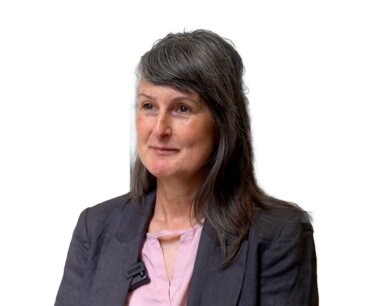 Alys [pictured right]: I think one thing that would be great to do would be to include partners - my husband has gone through this with me as well as being a nurse himself and working all the way through the pandemic. He needs some support, he's exhausted, and we need some help together to manage this.
Alys [pictured right]: I think one thing that would be great to do would be to include partners - my husband has gone through this with me as well as being a nurse himself and working all the way through the pandemic. He needs some support, he's exhausted, and we need some help together to manage this.
Vicky: I scream from the rooftops – coordination. It’s something very simple, but I think if the coordination within the hospitals could’ve been a little bit better it would’ve been a real gamechanger, because I was getting things like duplicate tests. As a result my fatigue got worse and now I have to pace myself. As long as I'm doing this, I'll get through it one day at a time.
Alys: I think it’s having a clinician who we can occasionally go to but it's always the same person, because as I move forward and I am getting a little bit better I have different needs and questions. Also, everyone's learning a bit more about what's happening with Long COVID. I need someone to have those conversations with - one person and it doesn’t need to be a horrible struggle to try and talk to that person, which is what it is at the moment.
The South East London Long COVID Programme is a two-year programme funded by NHS Charities Together and Guy’s & St Thomas’ Charity. It is one of the first KHP services to include all five NHS Trusts in south east London and their hospital charities. Its overall aim is to accelerate the recovery of people with Long COVID across the six boroughs of south east London.
To find out more, read the article about the programme here.
